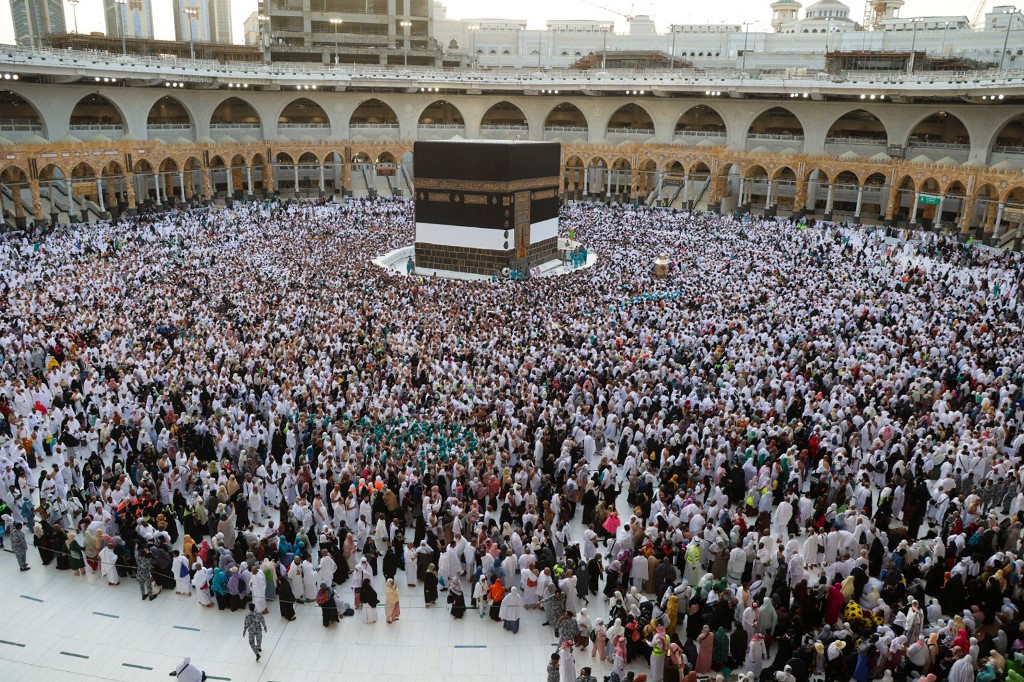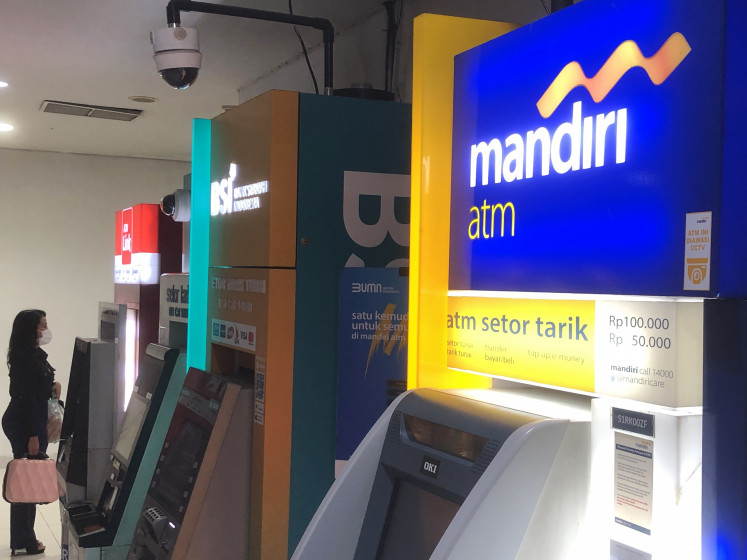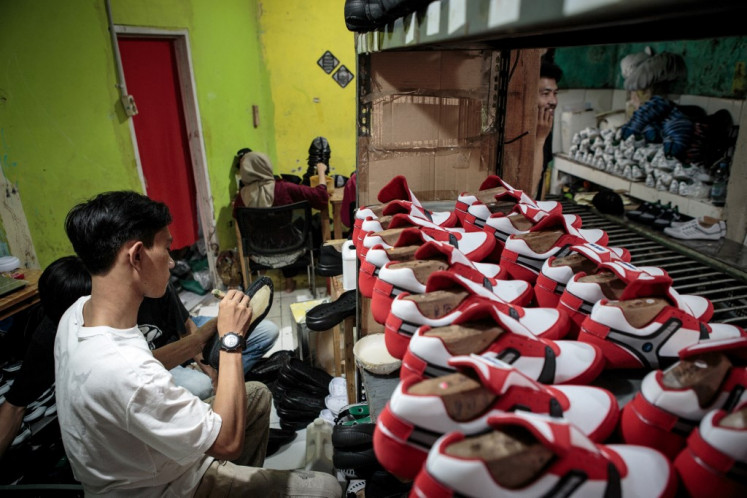Popular Reads
Top Results
Can't find what you're looking for?
View all search resultsPopular Reads
Top Results
Can't find what you're looking for?
View all search resultsA compromised haj?
The millions on the waiting list, most of whom thought they had already paid in full, must now be wondering how much money they will have to fork out when they are called up. They are faced with the uncertainty not only of whether they can travel but also of whether they will be able to find the money to cover the increase, whatever that amount is.
Change text size
Gift Premium Articles
to Anyone
T
he government and House of Representatives have settled on the fee hike for Indonesians performing the haj this year. The pilgrims will have to pay another Rp 10 million (US$657), on top of the Rp 39 million they have already paid. The government had earlier asked for an extra Rp 30 million.
The final figure seems like a good compromise, although it is unclear how many of the 221,000 people selected to travel this year can come up with the Rp 10 million on short notice before departures begin in May.
Many in this group have saved their entire lives and waited for years for the chance to go on the pilgrimage, and some will surely be unable to come up with the money. The majority, however, will find the funds somehow, borrowing if they have to. They have waited too long to let it pass.
But there is one major problem with this compromise. Going on the haj is the fifth tenet of Islam, required of all Muslims who are able, physically and financially, once in their lifetime. The fact that the government, in this case the haj fund management agency (BPKH), is giving Rp 41 million in assistance to each pilgrim alters the “able” condition.
When you tamper with the rule, in this case giving a subsidy, you create new problems. Without the increase, the BPKH said it would have had to subsidize some 70 percent of the costs of the haj.
The agency manages a portfolio of trillions of rupiah for pilgrims and uses the gains from this fund to cover the gap between what pilgrims have to pay and the real costs of the haj.
Following the deal between the government and the House, pilgrims this year must pay Rp 49 million. The real cost, the BPKH claims, is Rp 90 million.
Now the BPKH says the kind of support it has been providing is not sustainable and pilgrims will have to start paying a greater share of the cost. The haj fund is rapidly depleting. It’s a wonder that the agency had not foreseen this and raised the alarm earlier. Instead, its long silence gave false hope to millions of people on the waiting list.
This year the BPKH may get by with asking each pilgrim to pay an extra Rp 10 million. But what about next year? And the year after?
The millions on the waiting list, most of whom thought they had already paid in full, must now be wondering how much money they will have to fork out when they are called up. They are faced with the uncertainty not only of whether they can travel but also of whether they will be able to find the money to cover the increase, whatever that amount is.
The way the haj fund is managed, and the way it has been parceling out subsidies, reminds us of a pyramid scheme, a scam wherein the first participants get all the benefit and the later participants get less and less, before the scheme collapses and the last participants bear all the losses.
Even assuming the government has the best of intentions in assisting haj pilgrims, the approach has been wrong from the start. Instead of subsidizing the trip, the government should have used its stature and bargaining power to ensure better prices and services from haj outfitters.
The breakdown of the Rp 90 million price per person provided by the BPKH – for flights, accommodation, food and drink and other expenses – suggests ample room to cut costs.
After years of this haj system, the time has come for a new approach. Whether it is managed by the Religious Affairs Ministry, as it is now, or by an independent agency, state support for the pilgrimage needs greater transparency and accountability for the sake of the ummah (community of believers).











